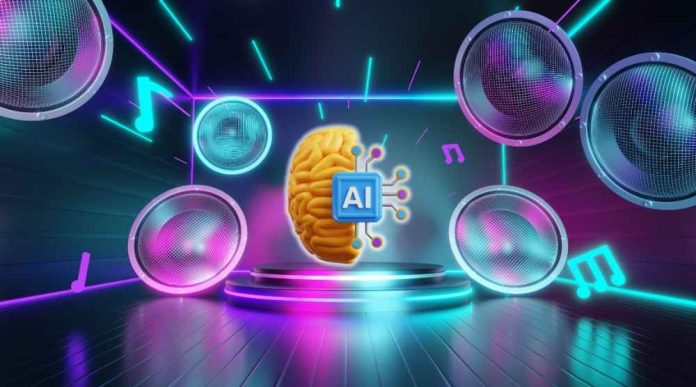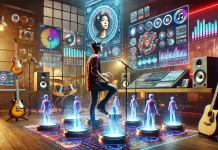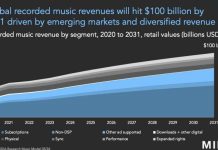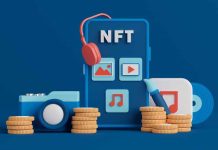
As artificial intelligence continues to permeate various industries, the music sector is no exception. AI-powered music curation services are on the rise, providing listeners with playlists tailored to their preferences, mood, and even time of day. With algorithms becoming increasingly sophisticated, there’s growing speculation about whether these technologies could one day replace traditional DJs. While AI offers precision and convenience, the deeper question is: Can algorithms replicate the artistry, intuition, and cultural impact that DJs bring to the music landscape?
The Rise of AI in Music Curation
Streaming platforms such as Spotify, Apple Music, and Pandora have long relied on algorithms to recommend tracks and curated playlists. Powered by machine learning and data analysis, these algorithms sift through vast libraries of songs, using user behavior, preferences, and patterns to offer personalized music selections. AI curators like Apple’s “For You” or Spotify’s “Discover Weekly” have become beloved features for millions of users, with algorithms adept at predicting what listeners want to hear next based on their past behavior.
This shift to AI-powered curation represents a broader trend within the music industry towards automation and data-driven experiences. For casual listeners, AI provides convenience, eliminating the need to search for songs and offering a seemingly endless supply of curated playlists. But can these AI services replicate the role of DJs, who traditionally act as tastemakers, gatekeepers, and influencers in the music world?
Algorithms vs. DJs: Can Technology Replace Human Artistry?
The biggest challenge AI faces in replacing DJs is the human element. DJs are more than just curators of music—they are performers, storytellers, and tastemakers. Their artistry lies not just in their song selections but in their ability to read the crowd, create a specific atmosphere, and craft seamless transitions between genres and moods during a live set.
While AI excels at sorting through data and making predictions, it lacks the emotional intelligence, intuition, and spontaneity that define human DJs. For instance, an AI might be able to analyze tempo, key, and song popularity, but it cannot replicate the energy and experience of a DJ spinning records at a live event, responding to the crowd in real time, and improvising based on the vibe of the room. The cultural significance of a DJ’s role—particularly in subcultures such as hip-hop, electronic music, and underground scenes—goes far beyond simply playing songs.
Moreover, DJs are influencers in their own right. They are often responsible for breaking new tracks, supporting emerging artists, and cultivating communities around particular music genres. The human touch they bring to music curation is rooted in culture, history, and personal taste—elements that AI, no matter how advanced, struggles to replicate.
The Benefits of AI Music Curation
That being said, AI-powered music curation does offer substantial benefits that traditional DJs cannot always match. AI can process vast amounts of data, offering highly personalized music recommendations tailored to individual tastes. These systems can introduce listeners to obscure tracks, niche genres, or global sounds that they might not have encountered otherwise. AI can also adjust instantly to a listener’s preferences, offering on-demand curation that evolves.
For independent artists, AI offers a potentially democratizing force. Rather than relying on radio DJs or music executives to get their music heard, artists can have their tracks automatically included in curated playlists if they align with a listener’s taste profile. This opens up new pathways for exposure, particularly for artists who may not have the backing of a major label or access to traditional gatekeepers.
Hybrid Models: AI and DJs Working Together
Rather than thinking of AI as a replacement for DJs, it’s more realistic to consider how the two can coexist and complement one another. Hybrid models are already emerging, where human DJs leverage AI tools to enhance their performances. DJs can use AI-driven software to help organize their music libraries, discover new tracks, or automate certain aspects of their workflow. This allows DJs to focus on the more creative and performative elements of their role, while the AI handles the technical and repetitive tasks.
Moreover, AI can be a powerful tool for radio stations, event organizers, and music platforms looking to optimize their programming. While AI might not be able to fully replicate a DJ’s artistic touch, it can help provide a more personalized music experience at scale. This could lead to a future where AI and human DJs collaborate, with AI handling the data-heavy aspects of curation while DJs focus on the artistry of music selection.
The Future of AI in Music Curation
Looking ahead, AI will undoubtedly continue to play a significant role in the music industry. As machine learning algorithms become more sophisticated, they will be able to make even more nuanced recommendations, potentially bridging some of the gap between human curation and automated playlists. However, the idea of AI completely replacing DJs seems far-fetched, especially when it comes to live events and the cultural impact DJs have in various music scenes.
The future likely lies in a symbiotic relationship where AI enhances, rather than replaces, the role of human DJs. While AI can offer convenience, efficiency, and personalization, DJs bring creativity, emotion, and cultural insight—elements that are crucial to the music experience.
Conclusion
Music Industry Weekly recognizes that AI-powered music curation is transforming the way people discover and enjoy music, offering personalized playlists and recommendations at an unprecedented scale. However, while AI can enhance the music experience in many ways, it is unlikely to fully replace the role of DJs. The human artistry, intuition, and cultural significance that DJs bring to music curation remain irreplaceable. As the music industry continues to evolve, the collaboration between AI and DJs could create new opportunities for innovation, ensuring that both technology and human creativity continue to shape the future of music.







